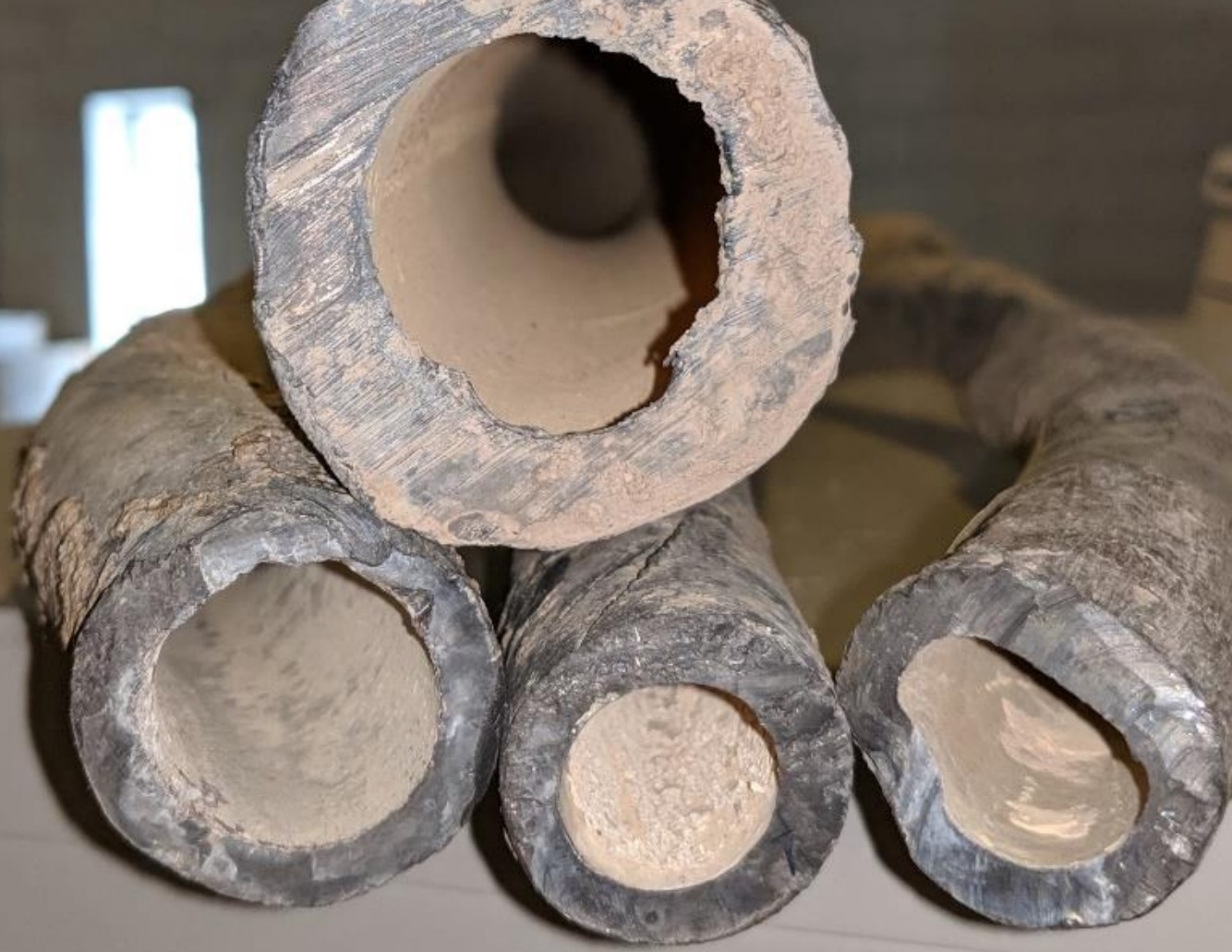New Program for Lead-Poisoned Children
Medical College of Wisconsin program seeks improved response to kids testing positive.

Lead service lines replaced by the Milwaukee Water Works with corrosion control visible in pipe. Image from Milwaukee Water Works.
A new program from the Medical College of Wisconsin seeks to create a more efficient response process for children who have tested positive for lead poisoning.
The program, Clinical and Community Solutions to Lead Free Children, launched this month. It is funded in part by a $400,000 grant from Advancing a Healthier Wisconsin and is expected to last three years.
Myah Pazdera, program coordinator with the Medical College of Wisconsin’s Office of Community Engagement, said the program’s main goal will be to better connect departments and organizations that handle lead response and to increase communication between clinics, the community, the Milwaukee Health Department and parents.
“We’re going to try to fill in the gaps and mitigate lead exposure,” Pazdera said.
Lead poisoning continues to be a concern in the community. In 2018, Mayor Tom Barrett accepted Milwaukee Health Department Commissioner Bevan Baker’s resignation because the department failed to ensure that families of 8,000 children with elevated lead levels in their blood were notified. The Common Council called it an “egregious public health failure.”
David Nelson, an associate professor at MCW and principal investigator for the program, said children who test positive for lead exposure will likely need medical attention and screenings. The source of exposure will also have to be dealt with, and all of these processes require specific personnel.
Children can be exposed to lead in a number of ways. Tap water from lead service lines and exposure to lead paint chips and dust are some of the most prevalent. These issues are most common in houses built before 1978, according to the Wisconsin Department of Health Services.
Nelson said some of these issues can be mitigated with ventilation and regular cleaning. Others, such as lead service lines, must be dealt with through replacement.
Nelson said some of the most important partners in the project, will be parents. He said the program will emphasize communicating with parents early in the process.
“We need to get them to come back again,” Nelson said. “We’re going to align people to start that process.”
The new effort comes as the state saw a notable drop in lead testing this year largely because of the pandemic. Pazdera said the Wisconsin Department of Health Services reported a 26% decrease in lead testing over the first three quarters of 2020.
But Pazdera said positive rates may also be rising because kids are spending more time at home because of the pandemic.
Jesse Ehrenfeld, director of the Advancing a Healthier Wisconsin Endowment, said the project was one recipient out of seven grants distributed by the endowment. The goal of these grants is to establish better policies and practices in public health and community-based health efforts.
Pazdera said the ultimate goal of the program is to build an infrastructure for lead response. This includes creating relationships with clinics and to get them integrated into the program.
“We’re going to move at the speed of trust and build those relationships,” Nelson said.
Ehrenfeld said the fight against lead will be a long one and won’t be resolved with this project alone. He said the hope is to potentially expand the project throughout the state, if success is seen locally, looking for “sustainability and scalability.”
“This will have a generational effect,” Ehrenfeld said.
This story was originally published by Milwaukee Neighborhood News Service, where you can find other stories reporting on fifteen city neighborhoods in Milwaukee.
More about the Lead Crisis
- Rep. Madison Proposes Restoring Local Control Over Lead Inspections - State Rep. Darrin Madison - Jan 6th, 2026
- $43 Million Later, MPS Says Classrooms Are Safe From Lead Dust - Corrinne Hess - Dec 18th, 2025
- MPS Buildings Cleared of Lead-Paint Risks after 10-Plus Months of Work - Milwaukee Public Schools - Dec 17th, 2025
- Wisconsin Moves to Require Lead Service Lines Replaced By 2037 - Danielle Kaeding - Dec 11th, 2025
- Gov. Evers, DNR Announce More Than $159 Million to Ensure Clean, Safe Drinking Water for Wisconsinites in 29 Municipalities - Gov. Tony Evers - Dec 10th, 2025
- EPA Announces $3 Billion in New Funding for States to Reduce Lead in Drinking Water - U.S. Environmental Protection Agency - Nov 25th, 2025
- Wisconsin Communities Get $282 Million for Drinking Water Projects - Danielle Kaeding - Nov 19th, 2025
- MKE County: County Launches Lead Abatement Program - Graham Kilmer - Nov 9th, 2025
- Milwaukee County Launches Lead Remediation Program to Reduce Lead-Based Paint Hazards in Homes in Suburban Communities - David Crowley - Nov 5th, 2025
- Wisconsin Improves Child Lead Testing Rates, Urges Continued Testing and At-Home Prevention - Wisconsin Department of Health Services - Oct 21st, 2025
Read more about Lead Crisis here




















